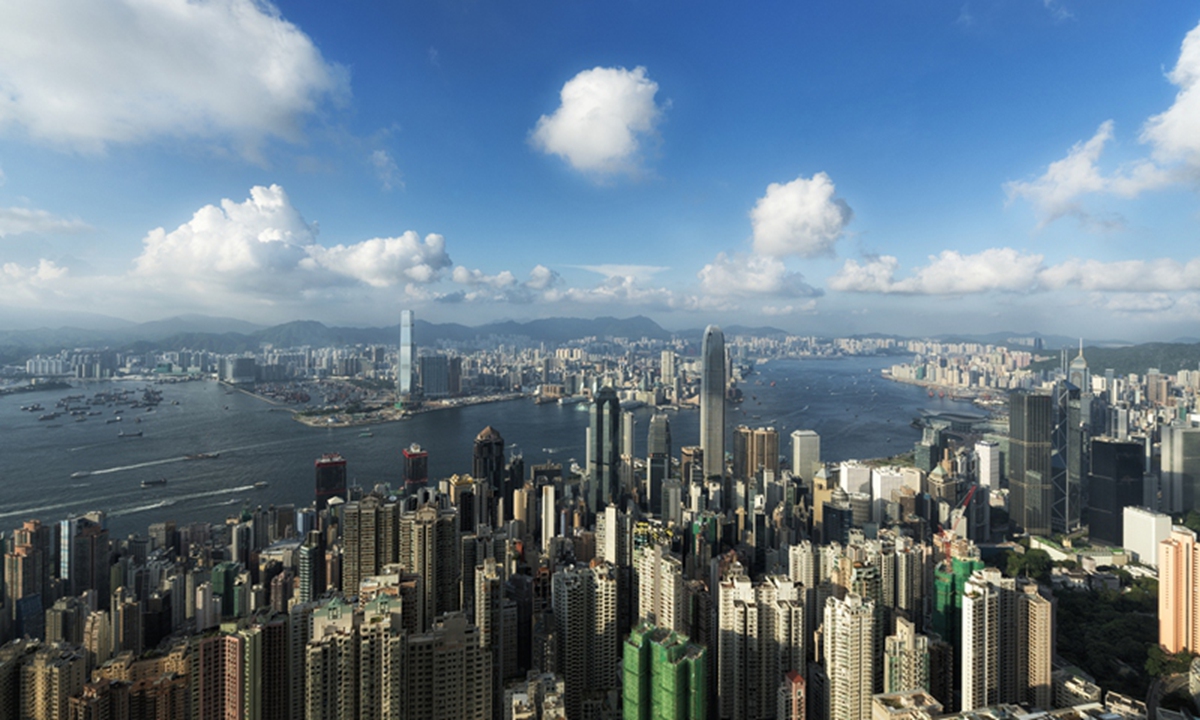How far is Hong Kong's economy from a recovery?
Source: Global Times Published: 2020/12/1 20:04:31

Photo: VCG
Hong Kong Disneyland will close on Wednesday as the Hong Kong Special Administrative Region (HKSAR) government announced new restrictions on public gatherings due to an uptick in COVID-19 cases.Following previous shutdowns in January and July, the third closure of Hong Kong Disneyland, to a certain extent, highlights the severity of the local epidemic situation as well as the difficulties of reviving the Hong Kong economy from a crippling recession. The HKSAR government had to suspend its travel bubble with Singapore due to a recent resurgence of COVID-19 infections.
The economic predicament faced by Hong Kong is painfully evident. Last week, in a 2020 policy address delivered by HKSAR Chief Executive Carrie Lam, the regional government forecast the local economy would contract by 6.1 percent in 2020, the worst economic performance since comparable data became available.
A number of industries in Hong Kong have been seriously affected amid the coronavirus crisis, with the region's unemployment rate remained at a 16-year high of 6.4 percent for the August-October period, according to data released by the Census and Statistics Department in mid-November.
However, once measures are made to control the virus's spread, Hong Kong's economy has the necessary elements to bounce back. According to a report released by Canada-based think tank Fraser Institute, Hong Kong has consistently topped global rankings for economic freedom.
As an international financial center, Hong Kong owns important core competitiveness in terms of currency exchange rate stability and free flow of capital. This also explains why capital has kept flowing into Hong Kong despite the pandemic in the past months, representing international confidence in the Hong Kong dollar and Hong Kong's status as a free financial and trade hub. Capital inflows into Hong Kong reached more than HK$130 billion in the three months after the new national security law came into effect on June 30.
Meanwhile, under increasing pressure from American financial regulators, an ever-growing number of US-listed Chinese companies are looking to Hong Kong for alternative listings, which may further reinforce the irreplaceable status of Hong Kong as a financial center.
The steady economic recovery seen in the Chinese mainland has also provided the Hong Kong economy the impetus to rebound. Especially in respect to foreign trade, the growth in mainland exports has driven a remarkable growth in Hong Kong's exports. In September, Hong Kong's overall exports rose 9.1 percent year-on-year, a bright spot in terms of economic performance in the post-epidemic era.
Fighting the highly contagious coronavirus remains a top priority for Hong Kong for the time being. Any government measures aimed at boosting employment and economic activity will only work once the virus is put under firm control, just like what the mainland has done and attained.
Whether the HKSAR government could effectively flatten the curve shortly, is the prerequisite for restoring business confidence, reviving public consumption and lifting its economy out of annoying stagnation.
Posted in: GT VOICE